There are numerous festivals and events happening in Malaysia all through the year. Participating or experiencing these festivals and events is one of the great ways to blend into the local cultures, heritage, traditions, and religions that exist in Malaysia. Malaysia is a melting pot of different cultures and traditions from across the globe.
There are several facets to the Malay culture. Every festival and event in Malaysia are celebrated with so much enthusiasm and excitement. Every culture has been welcomed by Malaysia with open arms, which is one of the reasons why there are so much vividness and exuberance in the celebrations. Contact your local tour operator to understand how to apply for Malaysia visa. We have listed some of the top festivals and events celebrated in Malaysia.
List of Malaysia’s Top Festivals & Events :
1.Chinese New Year
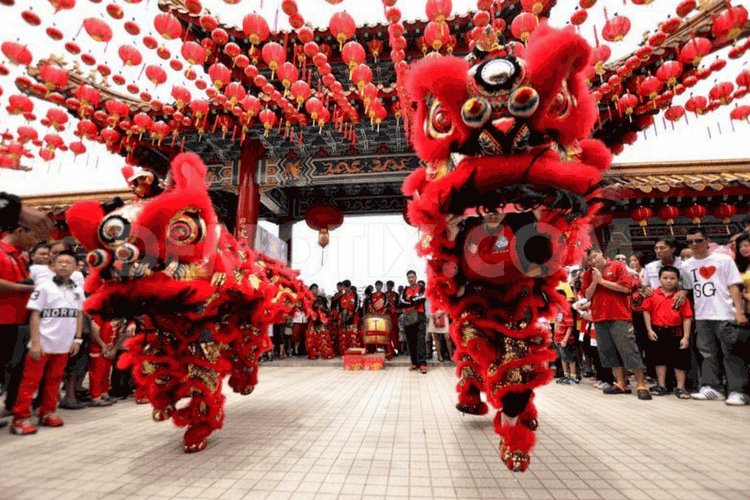
There is a great influence of Chinese cultures and traditions considering the significant portion of the population in Malaysia is Chinese. Hence, it is no surprise that the Chinese New Year is celebrated on a big scale with pop and glamor and is considered one of the biggest events in Malaysia. The Chinese communities decorate their homes, streets, and other establishments with the traditional red colors to keep off bad spirits. Malaysia turns red during this time, as all the Chinese population residing in Malaysia get together with their families. They cook several dishes on the same day which symbolize life, energy, and wealth.
The lion and dragon dances coupled with grand fireworks display mark a major portion of the calendar during the 15-day period held either in January or February. The exact dates are finalized by the Lunar calendar. You will get to celebrate Chinese New Year while visiting Malaysia in January or February depending on the calendar. You can also find the festivities of the Chinese New Year in shopping malls, where you can get good deals at reasonable prices and heavy discounts, while visiting Malaysia in February orJanuary.
When to Go: End of January or early February
Date: First day of the Lunar Calendar, between January 21-February 20
What to Experience: Lion dances, fireworks, family reunions, red decorations everywhere
2.Hari Raya Puasa
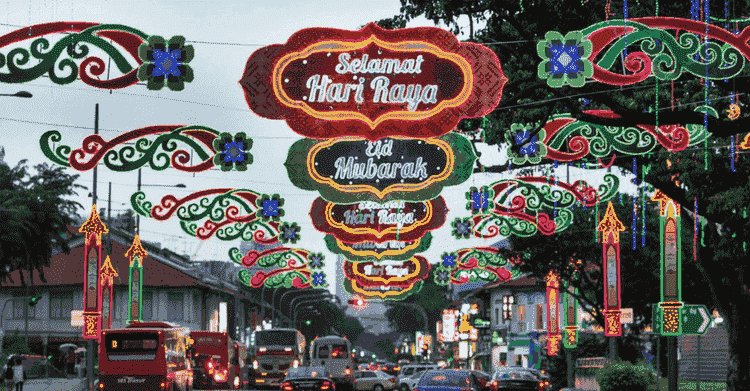
Also known as Eid al-Fitr, this festival marks the end of Ramadan, which is the month of fasting. This is said to be the most important Muslim festival in Malaysia. The entire day is celebrated with prayers, and the Muslims share food with the family members and the rest of the community. You can even get a chance to treat yourself to the best of Malay cuisine. The young ones are given money by the elders in green packets often referred to as ‘Eidi’.
This is one of the prominent Malaysia Festivals & Events celebrated across the country. Being a Muslim country and a majority population following Islam, the festival dates are decided by the 9th month of the lunar calendar and the festivities of Hari Raya continues for a month. The Muslims observe a fast from dawn to dusk and restrict consuming food and indulging in any wrongdoing. They also indulge in a lot of charity work.
When to Go: June or July
Date: End of Ramadan, the Islamic month of fasting
What to Experience: Grand feasts, family gatherings, new clothes, forgiveness-seeking
3.Deepavali
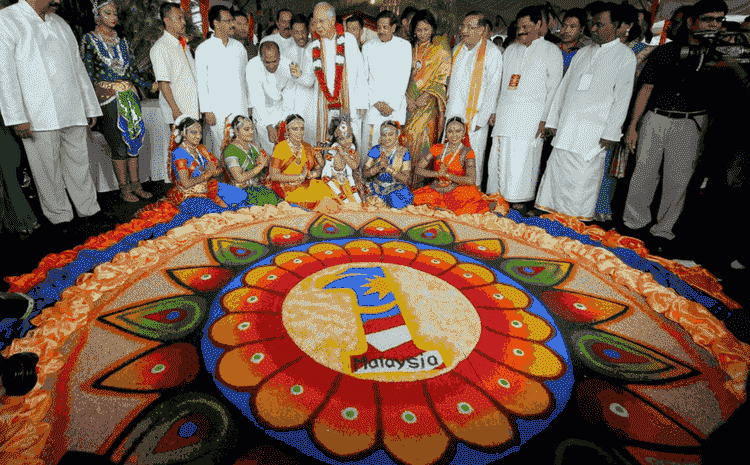
Also known as Diwali, this is considered to be the festival of lights and is celebrated in Malaysia with several light sources that symbolize the victory of truth over evil and darkness. It is a Hindu Festival and is also considered as the Hindu New Year’s Day. Be part of the vivid celebrations in Malaysia by being part of this grand Hindu festival in Malaysia. The dates of this festival usually fall in the month of October or November.
The Hindus bathe with oil at dawn before they embark upon a day of prayer. Several Hindus gather at temples or at their homes to offer prayers. You will find homes and temples beautifully lit with oil lamps, processions, street bazaars, fireworks which mark the festivities of the region, especially in Kuala Lumpur’s Little India, where you will find a significant Indian population. Do catch hold of any Hindu friends or colleagues you have in the city, as this could be your chance to taste flavored Indian delicacies and desserts and experience the wonderful Hindu traditions and culture.
When to Go: October or November
Date: Between mid-October and mid-November
What to Experience: Oil lamp lightings, huge Indian feasts, prayer rituals, flower garland exchanges
4.Wesak
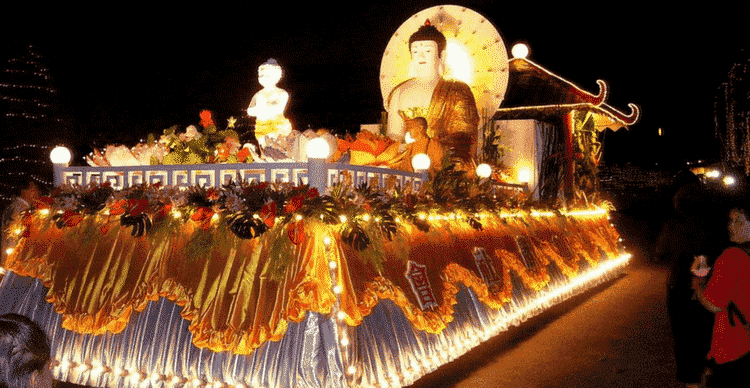
Also known as the Wesak day, this is a Buddhist celebration which is celebrated in remembrance of the three most important days (birthday, enlightenment, and the achievement of Nirvana) that occurred in the life of Buddha. The festivities kick off at dawn as they Buddhist devotees gather at Buddhist temples all over the country to meditate. They follow up activity is distributing food and indulging in charity donations to the needy. Regular prayers are offered as a part of the Wesak day celebrations. The marvelous float procession of the Buddha statue is one of the key highlights of this festival. This is one of the sights to watch out for.
When to Go: May
Date: April or May based on full moon
What to Experience: Buddhist temple celebrations, candle-lit processions, releasing caged birds
5.Thaipusam
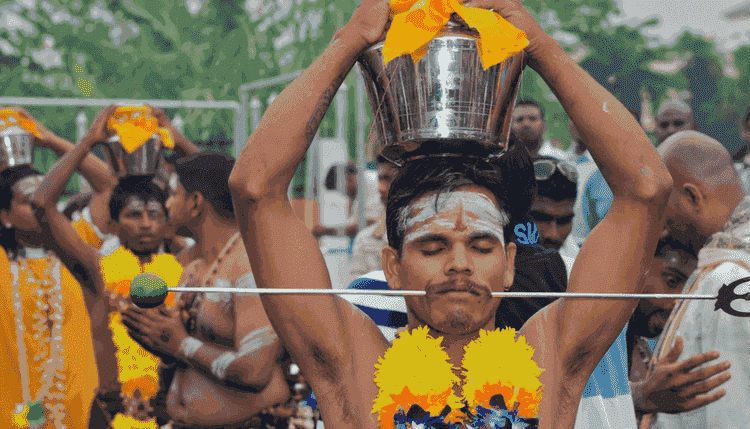
This is a Hindu festival which is celebrated by the Tamil community in Malaysia. It kicks off with a procession from Sri Mahamariamman Temple in Kuala Lumpur and continues for 15 long kilometers till the Batu Caves. The journey is spread over 8 hours and the procession includes climbing the 272 steps to reach the top of the cave. There are more than one million devotees which also includes several tourists from other countries who participate in this festival. The devotees carry sacrificial burdens known as kavadis and pierce their bodies to seek the blessings from God Murugan. This festival is also celebrated in another cave site in Penang. Thai refers to the month and Pusam refers to a star, this festival is usually celebrated in the month of January or February when the star is at its highest.
When to Go: January or February
Date: Full moon in January or February
What to Experience: Extreme devotion rituals, elaborate kavadi offerings, crowded Hindu temples
6. Malaysia Water Festival
The Malaysia Water Festival is a vibrant Hindu event held yearly to commemorate the beginning of spring and the New Year. Taking place in the Malaysian state of Penang, this massive celebration centers around the lively Thaipusam procession. During Thaipusam, Hindu devotees carry decoratively adorned structures called kavadis as an offering to Lord Murugan. The kavadis often pierce the skin, showing devotion through enduring pain. The Water Festival also features cultural performances, market stalls selling aromatic foods and flower garlands, and families gathering to pray in Hindu temples. With colorful parades, cultural rituals, and passionate music and dance, the Malaysia Water Festival exemplifies the country’s diverse heritage.
When to Go: January or February
Date: Same date as Thaipusam
What to Experience: Pierced kavadi offerings, cultural shows, vibrant colors, flower markets
7. Malaysia Christmas Celebrations
As a multicultural nation, Malaysia bursts with holiday spirit every Christmas. Major cities like Kuala Lumpur and Penang dazzle with elaborate light displays, parades, concerts, and bazaars. One highlight is the lively carnival held in Penang, featuring food stalls, handicraft vendors, and games. Malaysian Christmas cuisine also combines flavors from the nation’s Malay, Chinese, and Indian influences – think roasted turkey with sticky rice stuffing and ginger gravy. Churches across the country hold joyful Midnight Masses on Christmas Eve. With caroling, fireworks, and swaying palm trees, Christmas celebrations in Malaysia blends tropical charm with Yuletide traditions.
When to Go: December
Date: December 25
What to Experience: Christmas light displays, festive bazaars and concerts, unique Malaysian dishes
8. Malaysia International Mask Festival
Showcasing traditional masks from domestic and international artisans, the Malaysia International Mask Festival offers a colorful glimpse into ancient cultures. Local Malaysian mask makers display their creations displaying styles like the wide-eyed waiwai masks of the Mah Meri people indigenous to Peninsular Malaysia. Global contributions come from countries like South Korea, Mexico, China, and Uganda. The festival not only exhibits one-of-a-kind masks but also hosts cultural performances like masked dances with costume changes and drums. Through exhibitions, seminars, fashion shows, and lectures, the Malaysia Mask Festival provides understanding of how these art forms historically conveyed myths, legends, and rituals worldwide.
When to Go: September
Date: September
What to Experience: Domestic and global mask exhibits, cultural performances, mask-making workshops
Are there many festivals held throughout the year in Malaysia?
Yes, Malaysia hosts a vibrant lineup of festivals and celebrations each year that stem from its diverse cultural makeup. As an Islamic country also home to substantial Chinese, Indian, and indigenous populations, Malaysia honors a spectrum of Buddhist, Hindu, Muslim, and secular holidays.
Major national events pour color, tradition, and joy onto Malaysia’s streets and temples. Chinese New Year brings fireworks, red lanterns, and reunion feasts in January/February while April’s Hindu festival of Deepavali lights up Little Indias with glowing clay lamps. Hari Raya Puasa’s DJediding feasts conclude Ramadan for Muslim Malays in June as all workers return home. It is the perfect time for cultural travel during Ramadan in Malaysia. The country even indulges Christmas in December with flashy decor and fusion holiday cuisine.
Beyond these headlines, Malaysia’s states spotlight individual heritage with events like September’s nine-night Chinese lantern spectacle of the Mid Autumn Festival in Penang and Sarawak’s indigenous Gawai harvest in June. Sabah state honors the rice spirit Bambaazon with vibrant costumed dances too. Showcasing Malaysian diversity through faith, food, and community, these festivals offer fantastic reasons to visit Malaysia any month of the year.
